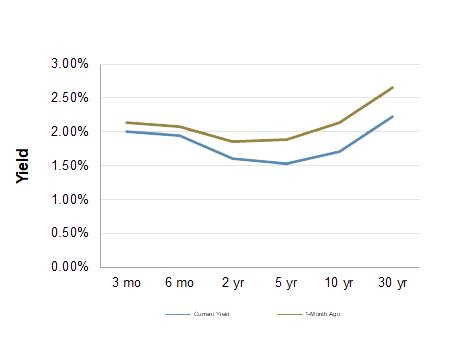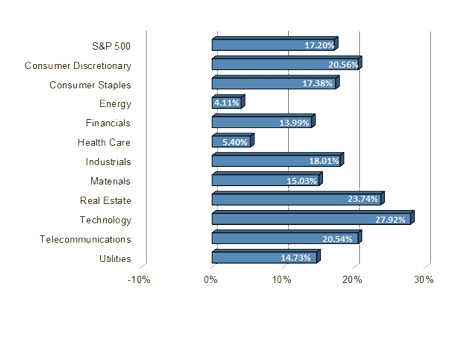Weekly Market Snapshot- Economy & Policy
Next week, the economic calendar picks up again. The Consumer Price Index is expected to get a small boost from higher gasoline prices, which normally fall in July. Ex-food and energy, inflation should remain moderate (note that year-over-year inflation in the core CPI is trending about 0.4 percentage points higher than the PCE Price Index, which is the Fed’s chief inflation gauge). Retail sales are likely to be mixed in July, following strong results in recent months. Industrial production is expected to remain weak. Lower mortgage rates have failed to fuel a significant pickup in residential construction activity.
Indices
| Last | Last Week | YTD return % | |
|---|---|---|---|
| DJIA | 26378.19 | 26583.42 | 13.08% |
| NASDAQ | 8039.16 | 8111.12 | 21.16% |
| S&P 500 | 2938.09 | 2953.56 | 17.20% |
| MSCI EAFE | 1846.36 | 1894.34 | 7.35% |
| Russell 2000 | 1532.13 | 1550.76 | 13.61% |
Consumer Money Rates
| Last | 1 year ago | |
|---|---|---|
| Prime Rate | 5.25 | 5.00 |
| Fed Funds | 2.11 | 1.90 |
| 30-year mortgage | 3.74 | 4.70 |
Currencies
| Last | 1 year ago | |
|---|---|---|
| Dollars per British Pound | 1.213 | 1.282 |
| Dollars per Euro | 1.118 | 1.153 |
| Japanese Yen per Dollar | 106.07 | 111.08 |
| Canadian Dollars per Dollar | 1.323 | 1.305 |
| Mexican Peso per Dollar | 19.411 | 18.693 |
Commodities
| Last | 1 year ago | |
|---|---|---|
| Crude Oil | 52.54 | 66.81 |
| Gold | 1509.50 | 1219.90 |
Bond Rates
| Last | 1 month ago | |
|---|---|---|
| 2-year treasury | 1.60 | 1.86 |
| 10-year treasury | 1.70 | 2.13 |
| 10-year municipal (TEY) | 2.06 | 2.45 |
Treasury Yield Curve – 08/09/2019

As of close of business 08/08/2019
S&P Sector Performance (YTD) – 08/09/2019

As of close of business 08/08/2019
Economic Calendar
| August 13 | — | Small Business Optimism Index (July) |
| — | Consumer Price Index (July) | |
| August 14 | — | Import Prices (July) |
| August 15 | — | Jobless Claims (week ending August 13) |
| — | Retail Sales (July) | |
| — | NF Productivity (2Q19, preliminary) | |
| — | Industrial Production (July) | |
| — | Homebuilder Sentiment (August) | |
| August 16 | — | Building Permits, Housing Starts (July) |
| August 21 | — | FOMC Minutes (July 30-31) |
| August 22 | — | Leading Economic Indicators (July) |
| August 22 – 24 | — | KC Fed Symposium (“Challenges for Monetary Policy”) |
| August 26 | — | Durable Goods Orders (July) |
| September 2 | — | Labor Day (markets closed) |
| September 6 | — | Employment Report (August) |
| September 18 | — | FOMC Policy Decision |
| October 30 | — | FOMC Policy Decision |
All expressions of opinion reflect the judgment of the Research Department of Raymond James & Associates, Inc. and are subject to change. There is no assurance any of the forecasts mentioned will occur or that any trends mentioned will continue in the future. Investing involves risks including the possible loss of capital. Past performance is not a guarantee of future results. International investing is subject to additional risks such as currency fluctuations, different financial accounting standards by country, and possible political and economic risks, which may be greater in emerging markets. While interest on municipal bonds is generally exempt from federal income tax, it may be subject to the federal alternative minimum tax, and state or local taxes. In addition, certain municipal bonds (such as Build America Bonds) are issued without a federal tax exemption, which subjects the related interest income to federal income tax. Municipal bonds may be subject to capital gains taxes if sold or redeemed at a profit. Taxable Equivalent Yield (TEY) assumes a 35% tax rate.
The Dow Jones Industrial Average is an unmanaged index of 30 widely held stocks. The NASDAQ Composite Index is an unmanaged index of all common stocks listed on the NASDAQ National Stock Market. The S&P 500 is an unmanaged index of 500 widely held stocks. The MSCI EAFE (Europe, Australia, Far East) index is an unmanaged index that is generally considered representative of the international stock market. The Russell 2000 index is an unmanaged index of small cap securities which generally involve greater risks. An investment cannot be made directly in these indexes. The performance noted does not include fees or charges, which would reduce an investor’s returns. U.S. government bonds and treasury bills are guaranteed by the US government and, if held to maturity, offer a fixed rate of return and guaranteed principal value. U.S. government bonds are issued and guaranteed as to the timely payment of principal and interest by the federal government. Treasury bills are certificates reflecting short-term (less than one year) obligations of the U.S. government.
Commodities trading is generally considered speculative because of the significant potential for investment loss. Markets for commodities are likely to be volatile and there may be sharp price fluctuations even during periods when prices overall are rising. Specific sector investing can be subject to different and greater risks than more diversified investments. Gross Domestic Product (GDP) is the annual total market value of all final goods and services produced domestically by the U.S. The federal funds rate (“Fed Funds”) is the interest rate at which banks and credit unions lend reserve balances to other depository institutions overnight. The prime rate is the underlying index for most credit cards, home equity loans and lines of credit, auto loans, and personal loans. Material prepared by Raymond James for use by financial advisors. Data source: Bloomberg, as of close of business August 1, 2019.

